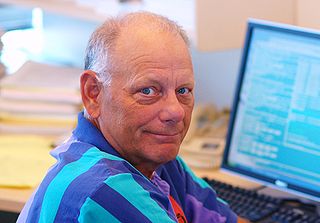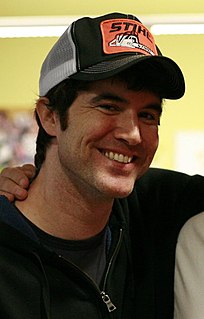A Quote by Douglas Rushkoff
When Steve Jobs toured Xerox PARC and saw computers running the first operating system that used Windows and a mouse, he assumed he was looking at a new way to work a personal computer. He brought the concept back to Cupertino and created the Mac, then Bill Gates followed suit, and the rest is history.
Related Quotes
In the summer of 1988, I received an interesting call from Bill Gates at Microsoft. He asked whether I'd like to come over and talk about building a new operating system at Microsoft for personal computers. What Bill had to offer was the opportunity to build another operating system, one that was portable.
Microsoft's Windows 3.1, released in 1992, was the first truly successful edition of Windows and juiced the Redmond juggernaut. Apple's Macintosh System 7.5, released in 1994, was another in a string of versions that lacked key architectural features that the Mac didn't have until Steve Jobs returned and brought with him the code that became OS X.
But for those who really want to make the world a better place, can we start looking at Bill Gates's path instead of Steve Jobs? I like my iPad, but Gates is one of the greatest heroes of our time. For me, that has nothing to do with Microsoft and everything to do with the Bill & Melinda Gates Foundation.
If I had never dropped in on that single course in college, the Mac would have never had multiple typefaces or proportionally spaced fonts. And since Windows just copied the Mac, it's likely that no personal computer would have them. If I had never dropped out, I would have never dropped in on this calligraphy class, and personal computers might not have the wonderful typography that they do. Of course it was impossible to connect the dots looking forward when I was in college. But it was very, very clear looking backward 10 years later.
In a capitalist system, there's a principle that if you invest, especially in a long-term risky investment, if something comes out of it, you're supposed to get the profit. It doesn't happen in our system. The taxpayer paid for it and gets nothing - assumes all of the risk, gets zero. The money goes into the pockets of Bill Gates and Steve Jobs, who are ripping off decades of work in the public sector.



































